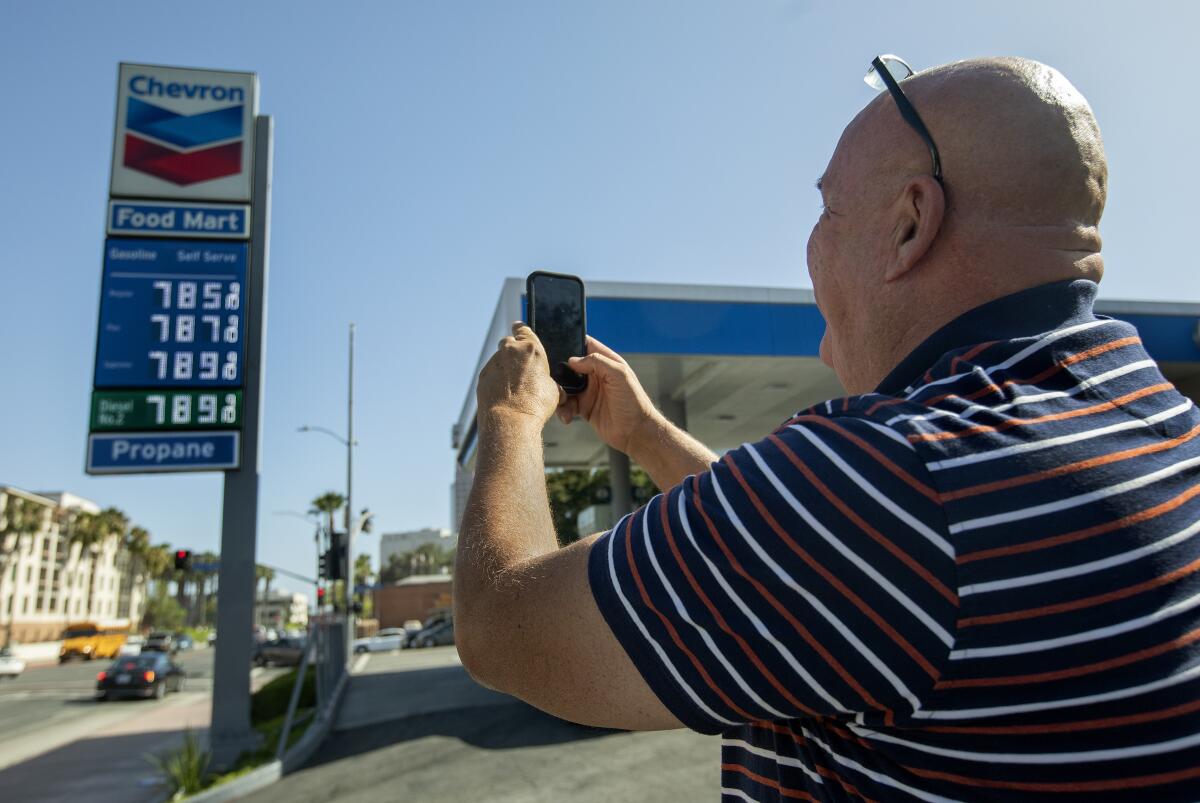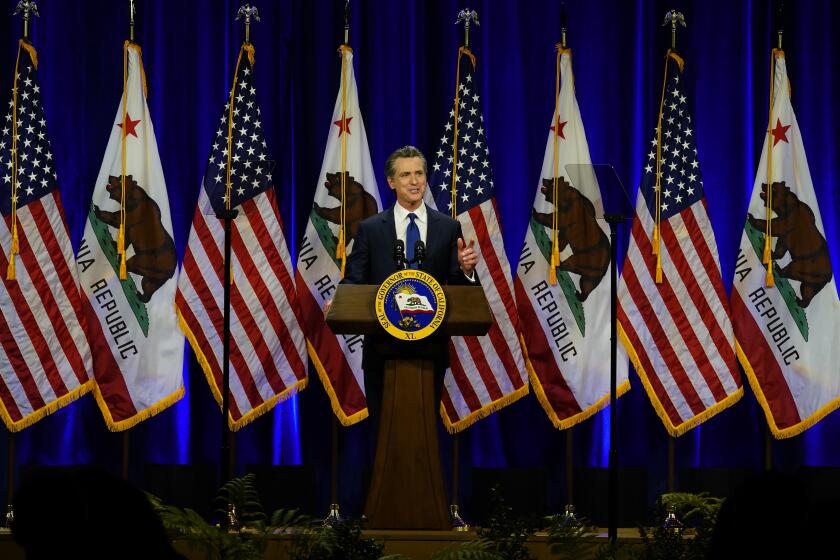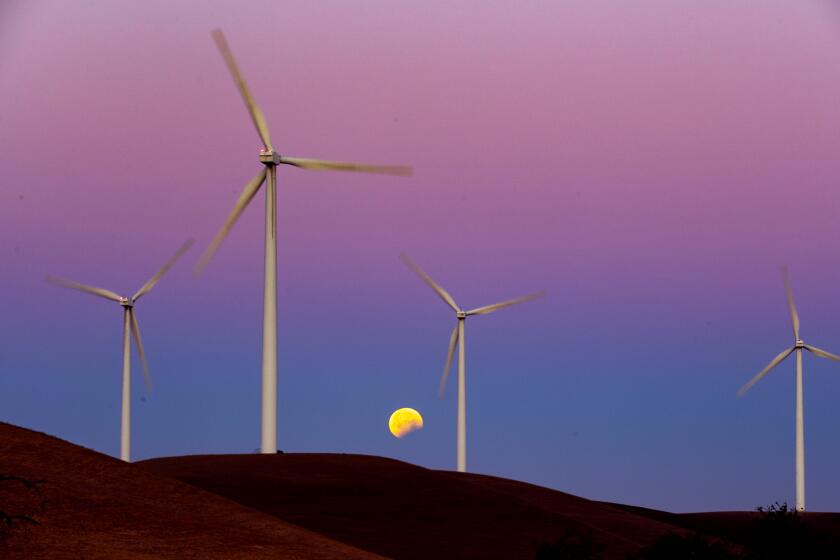Newsom’s $400 vehicle rebate idea is unfair and unwise. He should drop it already

- Share via
With the June 15 state budget deadline looming and after more than two months of debate, Gov. Gavin Newsom and legislative leaders are still in a standoff over the best way to provide relief to Californians struggling with the biggest jump in consumer prices in 40 years.
Newsom has insisted the fastest, easiest option is to give $400 debit cards to car owners to offset high gas prices. Individuals with two vehicles, including motorcycles, would get $800. No car? No debit card.
To which we say, no fair. Californians too poor to afford a car or who choose to forgo car ownership also deserve financial relief. It makes no sense to exclude them when all consumers are feeling the pinch of rising grocery costs, rent and energy prices.
Gov. Gavin Newsom’s proposed tax rebate to help Californians with rising gas prices and inflation should apply to all residents, not just car owners.
State legislative leaders have the better idea: Give $200 to most taxpayers and their dependents, with the payments limited to individual taxpayers with taxable income of $125,000 or less and up to $250,000 for joint filers, which would cover 90% of taxpayers. They also call for a program for low-income non-tax filers to apply for the funds.
Newsom should have dropped his car-centric proposal long ago. It was a bad idea when he rolled it out in March, and it was still a bad idea when he doubled down by including it in his May budget revision.
Not only is it unfair to people who don’t own cars, it also undermines the state’s fight against climate change, which requires reducing reliance on fossil fuels and encouraging people to drive less. (His proposal did throw a bone to carless Californians with $750 million for transit agencies to provide free or reduced bus and rail fares for at least three months. That funding should remain in the final budget. It’s chump change compared with the $9-billion cost of debit cards for car owners.)
Editorial: What’s better than a ban on Russian oil imports? Ending our dependence on fossil fuels
Banning U.S. imports of Russian oil shows the inherent danger in our reliance on fossil fuels. The solution: Dramatically accelerate renewable energy.
Still, Newsom has argued that sending money to vehicle owners would be the fastest way to distribute relief because the Franchise Tax Board, which processes tax refunds, would be bogged down during tax-filing season. He wants to hire a third-party vendor to take Department of Motor Vehicle registration data and distribute debit cards to vehicle owners — an untested method that comes with its own potential administrative and contracting complications. It would take about three months, or until the end of summer, to start getting debit cards to vehicle owners.
Based on the experience last year of distributing the Golden State Stimulus to low-income Californians, a broad tax refund as legislators have proposed would hit mailboxes after Labor Day — around the same time Newsom’s vehicle rebate would be delivered. With no time advantage, what’s the argument for making car owners winners and the carless losers?
Perhaps Newsom was hoping a gas tax rebate would be a political winner and help Democrats in swing districts where rising gas prices are a political liability. But the early results from the June primary suggest Democrats will do just fine in state races in November, so there’s no reason to pander to vehicle owners.
It’s a near certainty that the state will dole out some relief in the coming months. The question is who will get it, how much will it be and when will it arrive. Newsom has said he’s not wedded to the vehicle rebate and his priority is getting billions of dollars from the budget surplus to residents struggling with high prices. That’s good. Now get it done in a fair way.
More to Read
A cure for the common opinion
Get thought-provoking perspectives with our weekly newsletter.
You may occasionally receive promotional content from the Los Angeles Times.











